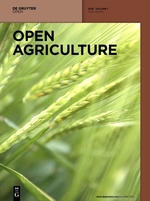High temperatures affect potato production in the tropics, putting tuber yield and quality at risk and leading to increased glycoalkaloid concentration the cause of the bitter taste in potatoes and a cause for concern for human health. The International Potato Center (CIP), has developed new heat tolerant clones which are heat tolerant and also resistant to late blight. These clones offer an opportunity to evaluate yield and glycoalkaloid levels after growth under high temperature environments. We evaluated four sets of 16 full-sib families and 20 clones for tuber yield and glycoalkaloid content in order to estimate narrow-sense and broad-sense heritability respectively. We used a randomized complete block design replicated in three locations in Peru; San Ramon, La Molina and Majes At harvest, the number and weight of marketable and nonmarketable tubers were recorded. We analyzed samples of tubers from each clone for glycoalkaloid content using spectrophotometry. Narrow-sense heritability for tuber yield, tuber number and average tuber weight were 0.41, 0.50 and 0.83, respectively, indicating that further gains in breeding for heat tolerance will be possible. Broadsense heritability for glycoalkaloid content was 0.63 and correlation with tuber yield was weak, r=0.33 and R²=0.11 (P<0.01). High heritability and weak correlation will allow us to select clones with high tuber yield and low glycoalkaloid content, to serve as candidate varieties and parents in breeding programs.
Heritability for yield and glycoalkaloid content in potato breeding under warm environments.
Citation: Gastelo, M.; Diaz, L.; Burgos, G.; Felde, T. zum.; Bonierbale, M.W. 2017. Heritability for Yield and Glycoalkaloid Content in Potato Breeding under Warm Environments. Open Agriculture. ISSN 2391-9531. 2(1): 561-570.
2018-01-26
BREEDING, GENETICS, GENOMICS AND CROP IMPROVEMENT SCIENCES GGCI, POTATO AGRI-FOOD SYSTEMS, POTATOES
journal_article

